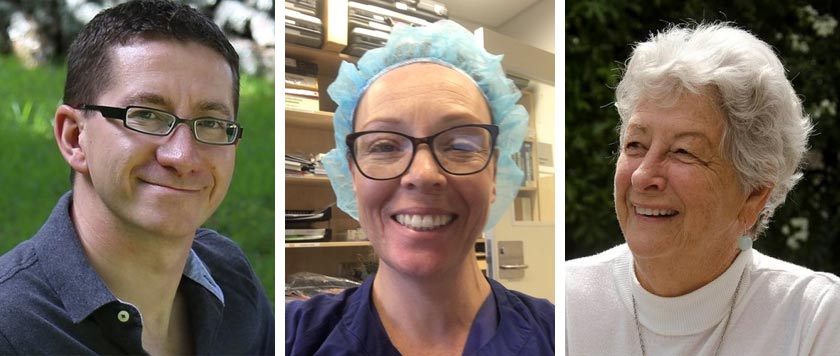Hearing from experienced theatre nurse managers such as Anis Parker, Robyn Bissett, Sue Frost and Pam Nichols helped me appreciate the more level playing field for nurses today.
Historically, theatre nurses were akin to handmaidens to the surgeons, and didn’t feel they could speak out, or felt they would be ignored. These days, perioperative nurses are more valued, trusted and respected as they deliver care alongside surgeons and anaesthetists, and are appreciated when they speak out on patient safety. Being aware of this sense of history makes me excited for the future of nursing.
The newly announced health reforms, too, were a strong focus of many speakers at the conference, with its theme What’s coming – are we flexible?
Speakers such as public health professor Michael Baker, economist Brian Easton, health scientist and professor Des Gorman, biochemist Anthony Manning and Auckland trauma nurse specialist Kevin Henshall discussed past, present and future health issues.
Easton painted a rather bleak scene regarding the Government’s decision to re-organise the health system at an inconvenient time, amid a worldwide pandemic.
Gorman highlighted ongoing health inequalities in New Zealand, urging the medical profession to take the lead in rectifying this, while Baker covered off New Zealand’s response to COVID-19 so far.
New Zealand biochemist Anthony Manning has recently returned from the United States, after selling his biotech company that focuses on developing novel therapies for diseases the health system is unable to treat effectively.
Listening, I wondered if new gene therapies are coming our way that will prevent common diseases like osteoarthritis, negating the need for joint replacement surgeries. Manning has lived in the United States for 30 years – how fantastic it is that New Zealand can benefit from the “brain gain”, COVID-19’s silver lining.
But it was trauma nurse Kevin Henshall’s reminder, to always be prepared, that was my biggest take-home message. With the Whaakari/White Island eruption, Christchurch mosque attacks and a global pandemic, it is timely to ask ourselves – how prepared are we for dealing with mass casualties in our workplaces? Do we have processes in place to handle a mass-patient event? What do they look like – and will they work? Most importantly, how can people find this information and do staff know how to find it in our managers’ absence?
New Zealand is quite isolated and operating theatres are a closed door, so it was wonderful to connect with peers from around New Zealand, to share our experiences and knowledge, alongside the NetworkZ programme for multidisciplinary teams many of us belong to.
The theatre managers and educators conference is an annual event. This year, we drew the largest group ever at 121. The 2022 conference will be held in Tauranga on a date to be confirmed.
Report by Wellington representative for the Perioperative Nurses College and Wairarapa nurse educator Amber Cox (edited by co-editor Mary Longmore)




